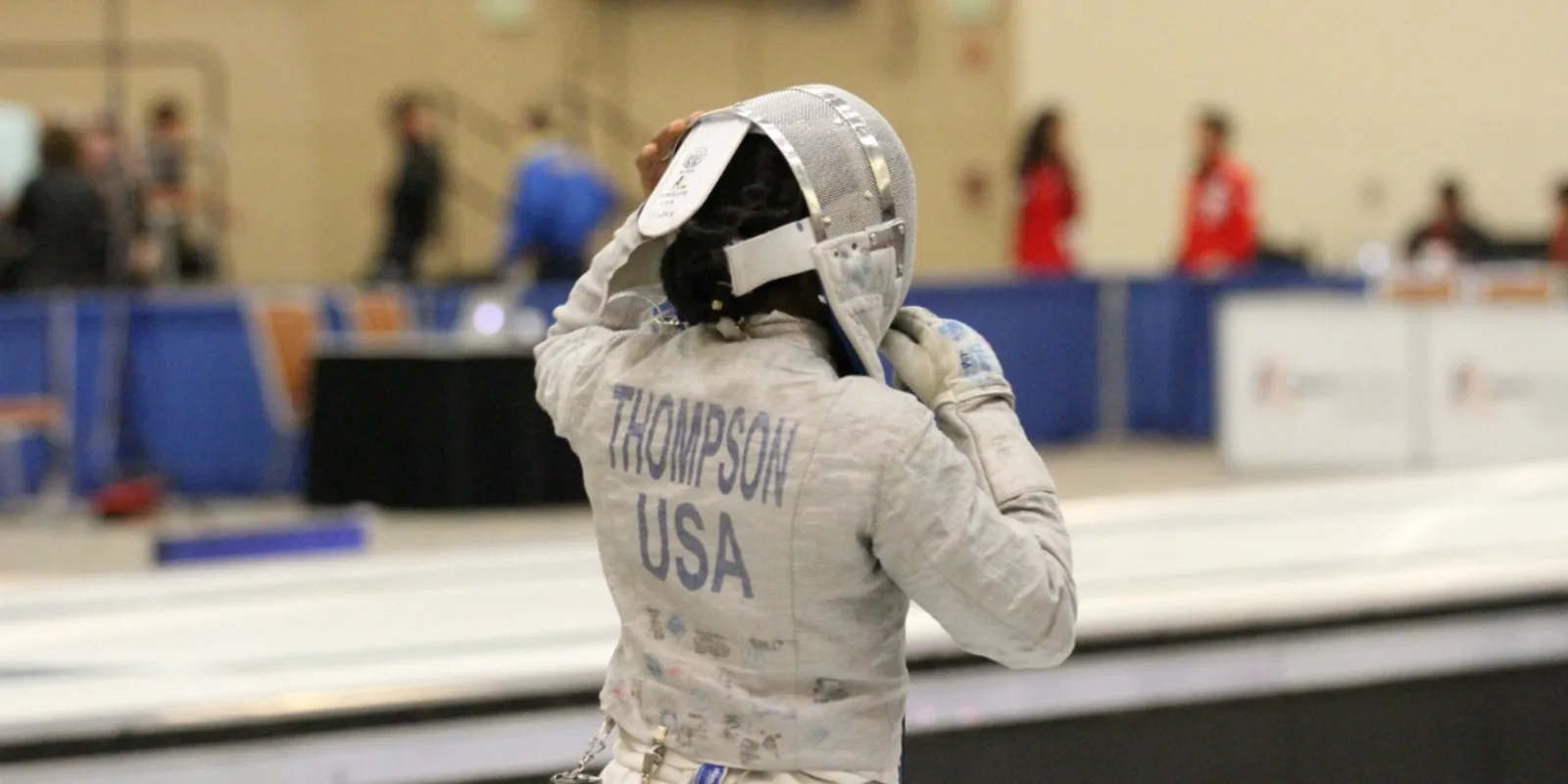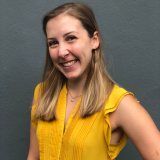
Two weeks before medical school started, Kamali Thompson tore a ligament in her thumb. While that alone would have been an obstacle to the average student, it was multiplied by the fact that Thompson had just started training to make the next Olympic fencing team for Team USA.
Thompson didn’t always want to be a fencer, but she always knew that she wanted to be a doctor. She was originally interested in being a pediatrician to try to fight childhood obesity, but fell in love with surgery and sports medicine during rotations. Her interest in sports medicine grew during the time that she was treated for her thumb injury.
“When I went to these sport medicine doctors, they were kind of helpful, but they just weren’t really understanding how important my thumb was because I wasn’t a normal individual. I’m an athlete,” Thompson says. “So after that happened I started thinking about sports medicine because I was just thinking, as an athlete, I could definitely relate to other athletes and their problems more than someone who hadn’t had any athletic background.”
Thompson was originally interested in being a dancer, and thought fencing outfits were “really weird” and they were “just hitting each other.” But after her first season, she found her competitive side and felt herself getting upset that she wasn’t winning.

“I was like, how do I get better, what are the next steps?” Thompson says. She shares the same view when it comes to school, as well, always pushing to be the best.
There was one instance in medical school when the residents and attendings could not diagnose a patient, and Thompson was spurred by this.
“[Not being able to diagnose the patient] made me really want to study harder and work harder because I’m sure something will happen — we’re human and we don’t know everything — but I don’t want to be in a situation where I really can’t figure out what a patient’s diagnosis is. So that taught me to do the best you can and be the best student you can, so you can learn everything possible,” Thompson says. It also reminded her to treat every single patient with love and respect “whether they’re doing well or whether they’re terminal, treat them with care.”
As Thompson finds the time to be both a hopeful fencer for Team USA 2020 and a medical student, she says she’s mastered prioritization and scheduling.
“School and fencing are definitely the main priority so I block out time in my day for school, I block out time in my day for fencing, and everything else kind of has to fit somehow, or wait until the weekend,” she says. And while fencing may sometimes need to be prioritized over a social event, she says that it’s taught her how to persevere in medical school.
“You fail a lot. In terms of failing, the goal is to go to a competition and to win, and that almost never happens, so as soon as you don’t win, you sort of have to pick yourself up and figure out what you did wrong and try to do it better next time,” Thompson says. “A lot of my classmates I’ve seen get really down on themselves, and it ruins their confidence and I’m just like, ‘Nope, What are the things I’m doing wrong well, how can I fix it?’ I think that’s really good and really important as a doctor because you can’t lose your confidence on a daily basis.”
In addition to maintaining her confidence, Thompson has learned to follow the best advice given to her: get comfortable with the uncomfortable.
“You get put in these situations that are really uncomfortable and if you aren’t comfortable with that weird feeling, you aren’t going to be able to handle the situation correctly,” Thompson says. “That translates to the hospital because we’re still medical students, we’re still new at this, we don’t know how to handle the situation, we don’t know sometimes if we should handle this or should we call the attending. So being comfortable and knowing that you have no idea what’s going to happen and just trying to go with the situation and do your best — that’s really beneficial, especially for medical students.”
Her other advice for medical students? Find a hobby that brings you joy.
“You need to take a break,” says Thompson. “You need to still do the things you love to do while you’re in medical school and just help keep your sanity.”






